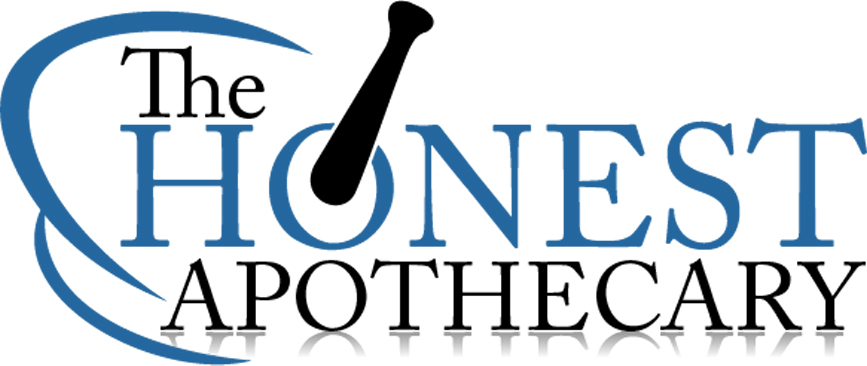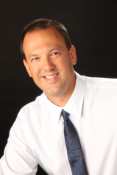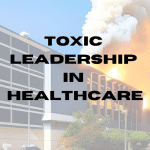“Take a rest. The field that has rested gives a bountiful crop.” – Ovid
I have noticed a couple things related to STRESS and HEALTH CARE in my years as a pharmacist. The first is that burnout among health care providers is far too common. Numerous studies and interviews confirm that the unique demands on the physical, mental and emotional energy of health care professionals are doing significant damage to the well-being of many in this field. The second observation is that their vacations are not very relaxing. “I need a vacation to recover from my vacation” is a phrase I hear a lot…maybe you have said it too.
Although geared toward health care professionals, this article is for anyone looking to get more “relaxation” out of their next vacation. I think this combination of stressed out professionals and an inability to really relax even while on vacation is a prescription for disaster. The negative health consequences of stress are well documented. It’s time that those of us who work in health care take a bit of advice ourselves. Stress may be killing you. Uncontrolled and chronic stress may lead to: Persistent headaches Chest pain Fatigue Insomnia Hypertension Mood swings Depression InfectionThe physiology and chemistry involved in stress have also been well studied and we know how chronically elevated epinephrine and cortisol levels can ultimately contribute to our declining health. strained mindset into any setting you can imagine. Is it the money? Paying more doesn’t guarantee less stress on vacation either. How about the company we bring along? Nope. Relaxation is more about how WE react and respond, what WE plan and what WE do than about who comes with us. So what ARE the ingredients to a more relaxed and rejuvenating vacation? The following principles, according to my own research, are key. Maybe implementing a few of them will help YOU relax more on your next vacation from work.
1. Plan and Delegate: Prepare for your vacation by making sure you won’t need to check in. I suggest planning for a vacation as if you would be gone twice as long as you really are. Set up your email notices. Ensure any meetings have been re-scheduled. Don’t schedule a big meeting for the day your return! Delegate responsibilities to talented individuals who can manage things well while you are gone. Let everyone know you will be gone and whom to contact in your absence. Empower your team to make routine decisions in your absence. Ensure things are managed and cared for at home as well. As Confucius points out: “Success depends upon previous preparation and without such preparation there is sure to be failure.”
2. Forego the alarm clock: For busy health care professionals, alarm clocks and schedules are a part of everyday life. Of course, this is true for other lines of employment as well. How much sleep do you need? It’s impossible to say. That is one reason why eliminating the alarm clock for a week will help you figure out your optimal sleep requirements. Note when you go to bed and when you naturally wake up. After a few days you will see how much sleep you really require. For more research on sleep, you might want to pick up “The Slumbering Masses” by Matthew Wolf-Meyer.
3. Diet: Watch what you eat. While short-term stress typically suppresses the appetite, chronic stress is different. Indeed, not only does chronic stress increase our appetites, but it may also specifically increase our craving for sugars and fats. We tend to carry over these eating habits into our vacation. For a truly relaxing vacation, avoid the temptation to overeat. When eating out, plan to take some home, rather than stuffing ourselves. You don’t have to avoid all the “fun foods” but do include many healthy choices every day also. Fish, for example, rich in Omega-3 fatty acids have been shown in some studies to reduce cortisol levels in stressed students. Fruits and vegetables are loaded with good nutrients as well. 4. Progressive Relaxation: You may need some deliberate and specific help learning to relax while on vacation, and “progressive relaxation” is one technique. This is not a “vacation only” practice, but vacation is a terrific time to begin to implement it. The basic concept involves the “tensing and relaxing” of every major muscle group in the body. This is done “progressively” one muscle group at a time. There is plenty of evidence that this technique is effective and helpful at reducing stress. For help, pick up the audio CD by Dr. Beth Salcedo or the book Progressive Relaxation by Patrick Fanning. 5. Exercise: Incorporate some form of daily physical exercise into your vacation. It doesn’t have to be much. Even 15-20 minutes per day will help reduce stress and enable you to more fully relax on your time away. One of the biggest excuses for not exercising is not having enough time. Well, now you have some time. Use it. For more information, read the “Exercise to Relax” article in Harvard Men’s Health Watch.6. Outdoors: Get out! Literally. Spend some time outdoors if at all possible. Most of your stressed-packed career is probably spent inside a building, hospital, office, car or pharmacy. So take the vacation as an opportunity to get outdoors. And yes, there are studies to back up the benefits of taking in the raw beauty of nature. Check out this one from the University of Michigan if you like.
7. Reading: Bring a book! Reading is a remarkable way to reduce stress. A UK study found that reading a book brought down stress levels by 68%, and was more effective than a walk or even a cup of tea (hard to imagine, isn’t it?)! What do you like to read? Bringing along that favorite classic or New York Times best seller might be just the thing to help relax you on your next vacation.
8. Avoid excessive alcohol: Numerous studies could be cited to show a possible benefit from a single drink of red wine, or potentially other forms of alcohol. But once that “one drink” limit has been exceeded, the benefits seem to quickly disappear. Sadly, alcoholism is just as common amongst health care professionals as others. The whole “drinking to relax” myth needs to be abandoned. The techniques all mentioned above require a fully engaged mind, and are well-documented, but cannot be fully appreciated if you are over indulging in alcohol.
9. Music & Sounds: The powerful effect of music and soothing sounds to help us relax are almost indisputable. But not all music is created equal! Some sound tracks are more effective than others. You might be interested in knowing that the soundtrack “Weightless” by Marconi Union was found, in one study, to be the “most relaxing tune ever.” For a direct link to the YOUTUBE version can be found HERE.
Vacations, properly utilized, can be GOOD MEDICINE for stressed out health care employees. Clinical psychologist Deborah Mulhern writes “What neuroscience is showing is that we require down time in order for our bodies to go through the process of restoration. It is only when we are safe from external stresses that our bodies can relax enough to activate restoration.”
When is your next vacation? I hope you will consider some of these suggestions in order to take full advantage of your time away from work.
©Jason Poquette and The Honest Apothecary. Unauthorized use and/or duplication of this material without express and written permission from this blog’s author and/or owner is strictly prohibited. Excerpts and links may be used, provided that full and clear credit is given to Jason Poquette and The Honest Apothecary with appropriate and specific links to the original content..
Health care relaxation Resting Vacation
Last modified: April 17, 2023
















